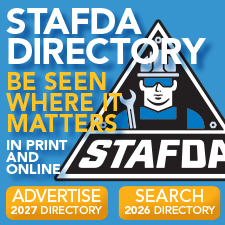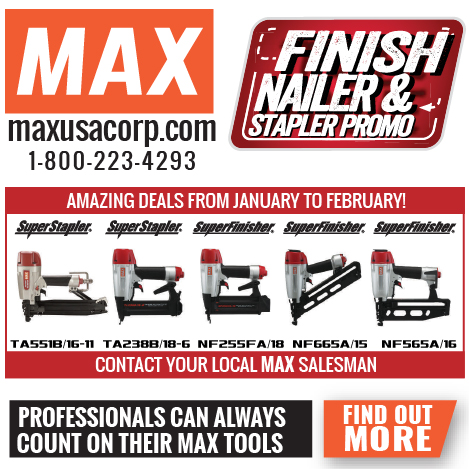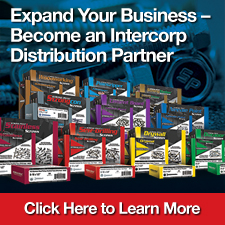Herb Shields: Keeping Your Eye on the Ball
Good asset management depends on people.
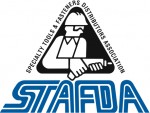 |
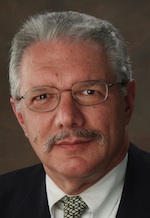 |
| Herb Shields is a partner in The Distributor Board, a STAFDA consulting partner with expertise in planning, sales, marketing, M&A, organization and related disciplines. |
Industrial distributors are enjoying a good business year in 2014, and 2015 promises more of the same. Sometimes when business is good, we tend to lose focus on those things which can lead to further improvement in our company’s bottom line.
This article will provide a quick review of some of the most important areas for asset management. However, the main theme is that your real focus should be on the people in your company who perform tasks related to asset management.
Cash management
Cash may not be your biggest asset, but we would argue it is the most important one. You cannot grow your business when you are short of cash. Yes, there are banks and other financing options, but all of them will look first to the amount of cash generated in your business. Margin improvement coupled with careful control of expenses are two good ways to increase the amount of cash generated for a given sales volume. Margin improvement has never been easy; in recent years the competitive forces represented by new sellers such as Amazon make it even more difficult.
Payables and receivables
Distributors find themselves squeezed between big suppliers on one end and big customers on the other. Payment terms have been stretched to 45 days as the norm and 60 days or more when dealing with the largest corporations. Distributors have no choice but to try and use payables to their suppliers as a way to mitigate the pressure.
Inventory management
Turnover is the most common metric to measure how well your company manages its inventory. Improving turns has two benefits — less cash is tied up in inventory, and since your dollars are cycled more frequently, margins dollars accumulate faster. From the financial perspective, inventory is considered an asset. From an operations perspective, it should be managed as a liability. The Distributor Board has written extensively about inventory so if you want more details, please visit our website or refer to past articles in Contractor Supply.
Your most important asset – people
We have all heard and read that phrase so many times. But, how do we manage that asset in our business?
Companies work very hard to optimize their processes. Distributors invest in warehouse space, equipment and information technology to keep the business competitive from a cost and capability standpoint. And, as we just mentioned, companies will credit their good people for the proper use of those assets and systems.
Many distributors do all of that. Is there a differentiator in terms of people? We would argue that it is giving those people the training and skills that will allow them to take the business to the next level by making them the Best. Here are four non-technical competencies that we see making a difference:
- The ability to lead and participate in cross-functional teams. Most work today is not done individually; it is done through a team. The team may be just two people or an entire department. But if people don’t feel they are an equal participant, or that the team is not effective, lots of time and energy will be wasted. If the team leader is not properly trained to lead people who don’t report to him/her, the likelihood of success is greatly reduced.
- Relationship building skills. Large corporations have been practicing this for years. Your customer and supplier relationships are critical to your distribution business. Have you equipped your sales and purchasing people with the skills they need to understand a collaborative relationship as opposed to “the old way” of doing business?
- Communication skills. E-mail is an effective way of communicating between two businesses. But e-mail has largely replaced face-to-face communication within a company. We have watched, with dismay, while two people sitting in adjoining cubicles send each other e-mails instead of just turning around. Your people will have a hard time building great customer and supplier relationships if they are not good communicators — both in writing and in person.
- Continuous learning. There are more options for learning new skills and knowledge today than ever before. Technology has also made training more accessible and more cost effective than ever before. If you embrace the idea of continuous learning as part of every position in your business, people will find opportunities to grow. The payback may be harder to calculate than the ROI on a new fork lift, but making your entire work force more effective will pay dividends. In our experience, those companies truly have a competitive edge.
We have worked in and with many distributors. What makes some of them the Best? It is not the warehouse building, it is not the most efficient fork lift and it is not their systems. Those all help, we don’t argue that. But it really is people — that over-used saying is the truth. CS
Herb Shields is a partner with The Distributor Board, which builds value for distribution
companies through a variety of disciplines. The Distributor Board is a designated
STAFDA consulting partner. Contact Herb at (847) 287-1575; e-mail: Herb@TheDistributorBoard.com; or visit www.TheDistributorBoard.com.













